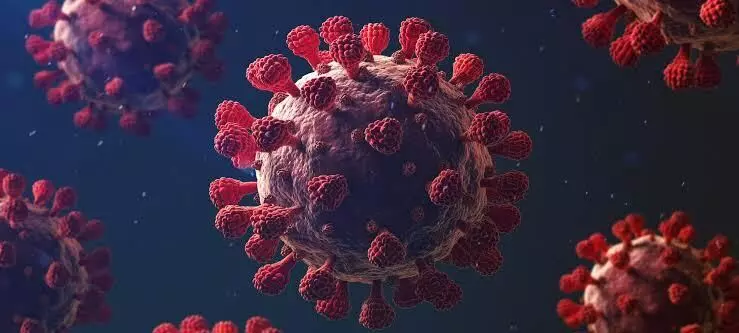
Study finds Covid-19 reinfection twice as likely among unvaccinated people
text_fieldsA study conducted by the US Center for Disease Control and Prevention (CDC) found people who are yet to get vaccinated against Covid-19 two times more likely to contract the virus once again, reported IANS.
In a statement, CDC said that: "Being unvaccinated was associated with 2.34 times the odds of re-infection compared with being fully vaccinated. To reduce their likelihood for future infection, all eligible persons should be offered Covid-19 vaccine, even those with previous SARS-CoV-2 infection."
The study was conducted by a team of 246 people in Kentucky between May and June 2021. It was carried out to understand the link between vaccination and re-infection of the virus among people that contracted the Covid-19 virus in the previous year.
The agency noted that while there are adequate scientific studies with evidence that the antibody response generated from the Covid-19 vaccine is better suited to neutralize Covid-19 variants than that generated by natural infection, only a few epidemiologic studies have been conducted that research how the vaccine benefits persons previously infected with Covid-19.
The study found that being fully vaccinated awards people previously infected with Covid-19 with additional protection. Partial vaccination, however, does not provide significant protection.
CDC said: "The lower odds of re-infection among the partially vaccinated group compared with the unvaccinated group is suggestive of a protective effect and consistent with findings from previous studies indicating higher titres after the first mRNA vaccine dose in persons who were previously infected."
However, the agency advised that the findings pertaining to partially vaccinated persons must be interpreted with caution as only a small number of partially vaccinated people were included in the study.
The study also has certain limitations. Reinfection was not confirmed through whole-genome sequencing, a process necessary to link reinfection with the first infection, that confirms that reinfection occurred due to a variant of the first infection. Additionally, the study also points out the chances of fully vaccinated people getting tested for the virus are low, which also has an effect on the external validity of the study.
A similar study with a larger population was suggested by the CDC to garner more accurate results.






















